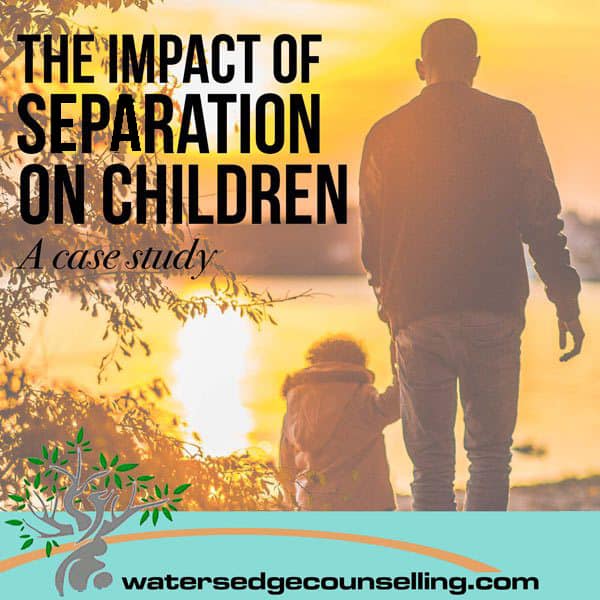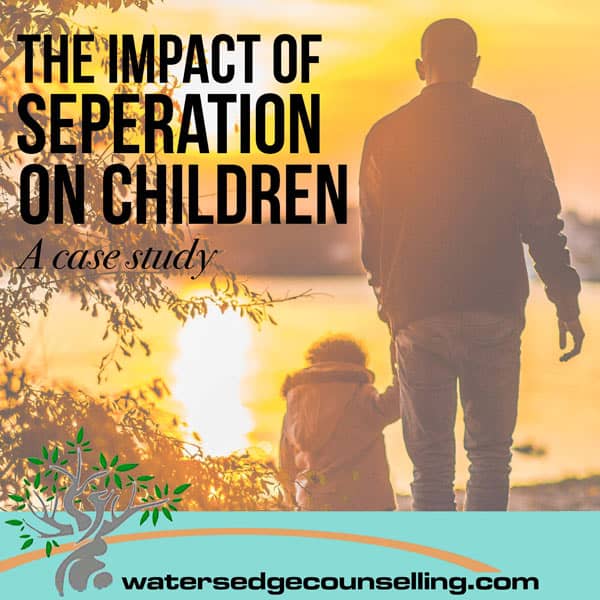
Heather* knew her son’s life would change drastically when she and her husband went through a separation. In this case study shared** with Colleen and published in the autumn edition of Living Magazine, Heather talks about the impact separation had on her child, and the strategies we can use to protect children through this difficult time.
I will never forget the look on our son’s face when we told him we were separating—the disappointment, hurt, bottom lip quivering and the tears. Both Dad and I sat down with our son and explained that we were going to go our separate ways. Our son was left feeling shocked, angry, anxious, hurt and scared.
This came out in many ways—through words, emotions, behavioural issues and separation anxiety. Our priority as parents was to make the best of a bad situation. We worked through the issues as best we could and came across many hurdles on both sides through a conflict in beliefs, personality, strategies and parenting styles, and this affected our judgement in working through some of the issues. Through the conflicts, it came down to the bottom line of ‘It is a child’s right to see a parent, not a parent’s right to see a child.’ This assisted us in focusing on the child’s needs and what was best for our son.
Things that helped were reading stories and brochures around separation, providing an explanation of why we as parents had separated, putting no blame on our son and making sure he understood that it was not his fault.
Through counselling we were made aware that we had to be careful of what we said. Words can easily be interpreted wrongly in a young child’s mind. For example “I moved into another bedroom to be closer to you could be read as “It’s all my fault”. It is also important to never put the other parent down or speak harshly of them to the child.
Play therapy, using toys and colouring-in, provided opportunities within the safe environment of the counsellor’s room, for our son to give expression to how he was feeling. Teaching him strategies such as the use of a visual thermometer to identify the level of anger he was feeling at any given time and ways to help the anger to dissipate gave him a sense of feeling more in control and allowed him to settle.
Children need lots of attention, affection and must know that their world is still safe. Lessons learnt from my experience—don’t move out of the family home—this just adds to the change and routine breakdown. It would be beneficial for the main care giver to remain in the family home. Children need to feel safe in their environment and even more so after a separation. There’s already a lot going on without them having to re-adjust to a new home. It also puts more blame on the parent moving out.
Try and make the rules/boundaries the same at both households, ensure they have their own things —toys, clothes, etc. at both houses. Allow extended families to visit them at both houses—this assists in their new normal. We found it beneficial to have a calendar to show what days will be spent where so there were no surprises and our son knew what was happening when. This will depend on the age of the child. We found that any small changes in routine caused a lot of confusion and anxiety and therefore tried to keep what we could the same. For example, Dad always did the pick-up and at the same time.
Sometimes children cannot express what they are feeling by using words, and this comes out in behavioural issues.
In times like this we turned to books written by Tracey Moroney When I’m feeling angry, When I’m feeling scared and others in the collection. These were very beneficial as they were written in a way that children can relate to and understand. We also found the Kasey Chambers, Pappa Bill and the Little Hillbillies CD very beneficial, as it has songs and lyrics that were applicable but partly sung by children.
It’s important for any parent to take care of themselves.
As a single parent, you are dealing with the challenge of your life being turned upside down and the feelings around failure and separation—but you now have the feelings of another person to address as number one to your own inner turmoil. It is important you get plenty of sleep, have some alone time when you can, social interaction when you need it and try and find a balance between closing yourself off to the world and being a part of it. You need time to yourself to reflect and feel your own emotions and grief caused by the separation, but it’s just as important to be around positive and like-minded people. I found that when I was better, my son was better.
We have been faced with many challenges and emotions throughout this journey and have learnt many lessons, some positive and some negative. We have decided to focus on the positive as we cannot change the past. Number one tip for any parent going through a separation—ensure that the child feels loved, safe and secure and this will make it easier for them to accept all other changes.
*Name changed for confidentiality reasons.
**This case study has been published with permission of the client.
Are you going through a separation? Do you want to protect your children through this transition? Here’s what you need to do: Contact WatersedgeCounselling on 0434 337 245 for a FREE 10-minute phone consultation on how we can best help you, or press book now.

Leave a Reply